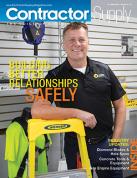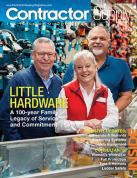Exclusive: Stop Hiring People Who Steal from Your Company
Pre-employment tests plus two other techniques help reduce stealing and theft by your employees.
This is the sixth in a series of articles by Dr. Michael Mercer, Ph.D.

The Wall Street Journal and other business periodicals have reported about increases in employees stealing and the financial drain that employee theft has on companies. Just how financially draining is employee stealing and theft?
(A) The value of stolen items rose one-third in just two years, according to PriceWaterhouseCooper’s survey of 5,400 companies.
(B) 20% of employers consider employee theft a moderate to very big problem, found Institute for Corporate Productivity research.
And how does employee theft impact your non-stealing employees? First, your honest employees feel upset when co-workers steal. It proves you hired lousy humans. Second, employees know anything reducing profits impacts their job security. If a company loses too much to theft or stealing, eventually employees may get “de-employed” to decrease financial losses.
Fortunately, managers can use pre-employment tests and other methods to
- A. Avoid hiring job applicants who are thieves
- B. Discover which employees steal
1st WEAPON = PRE-EMPLOYMENT TESTS to HELP YOU HIRE NON-THIEVES
Pre-employment tests that specifically predict or forecast dependability can help you hire Non-Thieves. After all, the fastest, easiest and cheapest way to avoid stealing by employees is obvious: You must avoid hiring job applicants who will steal.
For example, in my pre-employment test research to create the Theft/Stealing prediction on the “Dependability Forecaster Test,” I used a two-step method to find out which test questions predict if someone may steal. First, two groups of people answered my extensive list of research questions:
- (1) One group was Thieves – hundreds of prisoners locked-up in jails for stealing and theft crimes.
- (2) The second group was hundreds of Non-Thieves.
Then, I used statistics to find out which specific questions the Thieves answered statistically significantly differently than the Non-Thieves.
Those questions became the pre-employment test’s section that helps predict if a job applicant may steal.
When applicants take the pre-employment test, companies immediately see if a job applicant scored like the Thieves or the Non-Thieves. Of course, managers prefer hiring applicants who get the test scores of the Non-Thieves.
2ND WEAPON = BACKGROUND CHECKS
In addition to pre-employment tests that help predict Theft/Stealing, a company also might conduct a criminal background check to see if the applicant was convicted of stealing crimes.
Problem: Unfortunately, a background check only will tell you if the applicant was convicted in the locale where you do the check, for example, your county. Warning: If an applicant was convicted in another locale, then you may not find out.
Solution: First, administer a pre-employment test to help predict Theft/Stealing – before you spend your time and budget on expensive background checks. Then, if employment test scores show an applicant scored like Thieves, then you probably will not bother to waste budget doing theft or criminal background check.
3RD WEAPON = ACT LIKE JAMES BOND
After you use pre-employment tests to help you hire the best, you still need to watch your employees to make sure they do not steal. It may not sound nice, but you need to “spy” on employees. You can install video cameras, tracking devices and other allowable methods.
For example, an executive at one company called me for help to stop employee stealing that harmed the company’s finances.
First, I helped the executive start using the pre-employment test that predicts possible Theft/Stealing concerns – so the company could avoid hiring thieves. Second, I recommended the company “spy” on current employees by installing location-tracking devices on its delivery trucks.
Results = The pre-employment test helped the company hire Non-Thieves. Among employees, the company discovered delivery drivers were (a) driving away from their most direct routes and then (b) selling company goods during their off-route driving. The company’s stealing by employees came to a screeching halt. And new employees were Non-Thieves.
Suggestion: Make 100% certain employees realize you watch them. Some may complain about “Big Brother” for awhile, but they will know your rules. Your rules include no stealing is tolerated. Plus, employees realize you use multiple tools to catch employees who steal. Also, point out that stealing by employees creates less job security for everyone. That will make them thank you for “spying.”
PRE-EMPLOYMENT TESTS + CRIMINAL CHECKS + SPYING HELP YOU STOP EMPLOYEE STEALING!
Employee stealing drains a company’s finances. It also creates a lousy workplace atmosphere. Research and news reports indicate employee stealing is a big, growing, expensive problem. So, managers need to take three steps to stop theft by employees.
1st Step = Give pre-employment tests to job applicants to help you avoid hiring possible Thieves or people who may steal.
2nd Step = Conduct criminal background checks on job applicants who did well on the pre-employment test.
3rd Step = Install monitoring devices that catch employees who try to steal your company’s possessions.
Pre-employment tests, criminal theft background checks and “spying” give you a fantastic 1-2-3 punch to knock-out employee stealing in your company. CS
Michael Mercer, Ph.D., created 3 “Forecaster Tests” – pre-employment tests. Companies use his tests to predict which job applicants may succeed (or fail) on-the-job, if hired. Dr. Mercer wrote the book, Hire the Best & Avoid the Rest. You can see information about his 3 “Forecaster” pre-employment tests at www.MercerSystems.com.
© Copyright 2019 Mercer Systems LLC Reprinted with permission.
















